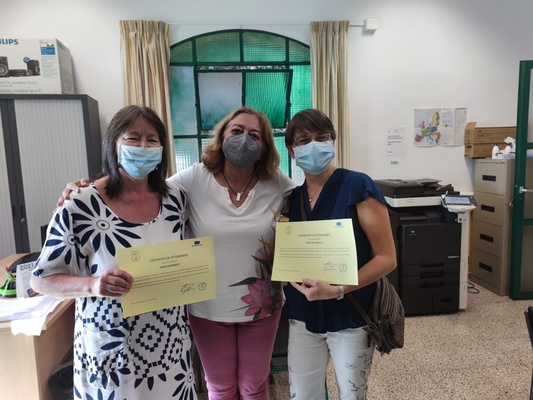After a more than a year long break, because of COVID-19, we succeeded to organise a mobility in Santa Cruz de Tenerife.
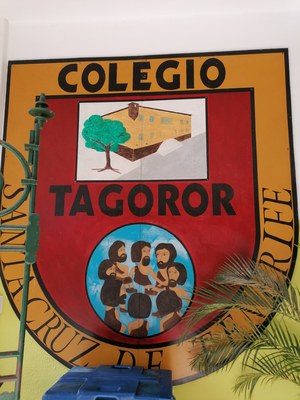 Educational visits of schools abroad aren't so easy to arrange in epidemic times… But even though, after all vaccinations, COVID-19 tests a few times, Mira Marinšek and Melita Langus arrived in front of CEIP Tagoror in Santa Cruz de Tenerife on Monday morning.
Educational visits of schools abroad aren't so easy to arrange in epidemic times… But even though, after all vaccinations, COVID-19 tests a few times, Mira Marinšek and Melita Langus arrived in front of CEIP Tagoror in Santa Cruz de Tenerife on Monday morning.
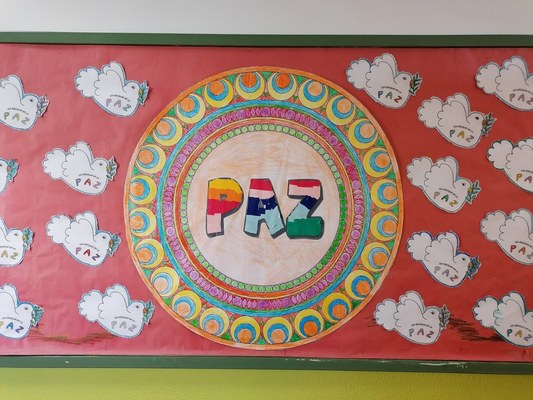
The principal of the school gave us a very warm and kind welcome.
The school is located in the Barrio de Somosierra in the Ofra-Costa Sur District. This district has a demography of about 3400 inhabitants with a low socio-economic environment and a high percentage of unemployment.
Many families have a very low income, so approximately 70% of the students are served free breakfast every morning and they are also exempt from paying the fee for the dining menu.
The centre is small, built in 1947 in a building of two heights. It has 3 units of Early Childhood Education and 6 of Primary Education with a total of approximately 130 students between 3 and 12 years of age from the area and other neighbourhoods including students of different nationalities.
The kindergarten places are separated from the Primary school places with a stop sign, that children from both sides aren't allowed to cross.
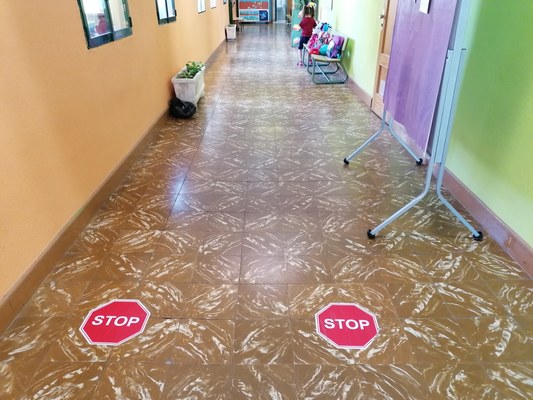
There are 25 students in a class at most. There are also some children from Youth care centre visiting this school. They cannot live at home, because of bad conditions or because of parents' incapability of taking care for them. The principal decided to accept them open hearted. It's a challenge for her, to have such children at her school. She' s aware that this is not an easy thing for teachers, but she recognizes a high level of professionalism in them and she believes they'll give the students all the love and safety they need, which is more important as a high level of knowledge. This is a good ground for their future to become responsible and satisfied citizens, who can find a job and take care of themselves and their families.
The principal is highly empathic person, who is aware that it is essential to have good relations and welfare between the staff, because only in those conditions everybody works in one's best way.
There are students with special educational needs who receive measures of attention to diversity and are attended several hours per week by a specialist teacher to help properly internalize the learning. Special pedagogue works with them in different ways. Sometimes she takes them out of their classroom and works with them individually or in a small group. But if the students have to hear some explanations together with the other students, she works with them in their basic classroom.
The principal took us on a tour through the school and introduced us to the school staff and students. She introduced us to the school technical care, with what she gave a big acknowledgement to their sometimes overlooked work. We visited a school management's place, where principal her assistant manager works and a school secretary.
She told us about a school system in Spain. Children of the age of three, four and five are in the kindergarten. They go to Primary school at the age of six and stay there till twelve years of age. Afterwards they go to Secondary school for four years, which is also obligatory. Then they can decide for High school or vocational schools, which lasts for two years.
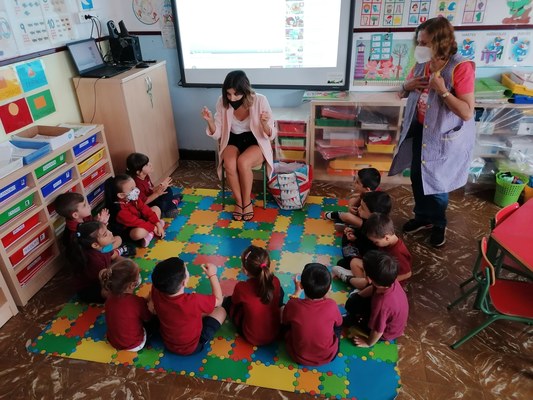
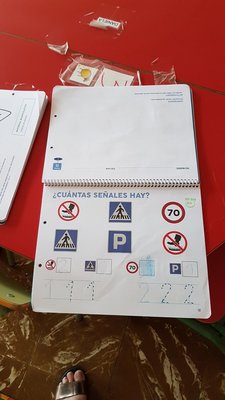
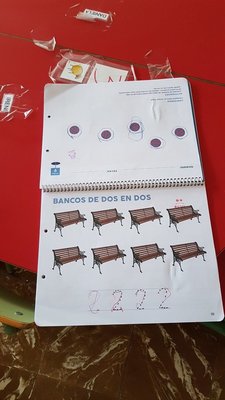
Children begin to learn numbers, vowels, shapes at the age of three, in the Infantile school. They are also writing them and recognizing them as pictures or symbols, they already have workbooks. They are supposed to know all the letters and numbers when entering a Primary school.
From the age of 3 to 6, students study English as a second language and in the 5th and 6th grade, the study of French is added.
The school opens at 7.30 in the morning to provide breakfast and early reception. The school hours are from 8.30 to 13.30 and the dining room service from 13.30 to 15 hours for 125 people in which different food allergies, religious and cultural beliefs are taken into account. In September and June, the timetable shortens for an hour, so all the lessons finish at 12.30.
Extracurricular activities are from 15 to 17 hours in which they offer football, multisport, dance, rhythmic gymnastics and educational reinforcement for mathematics, language and English. They aren't taught by their teachers, but from outside mentors.
When we were participating the lessons, the principal took us into each classroom and presented us shortly.
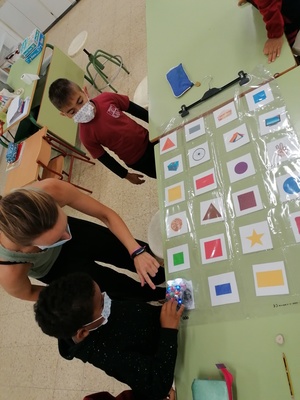
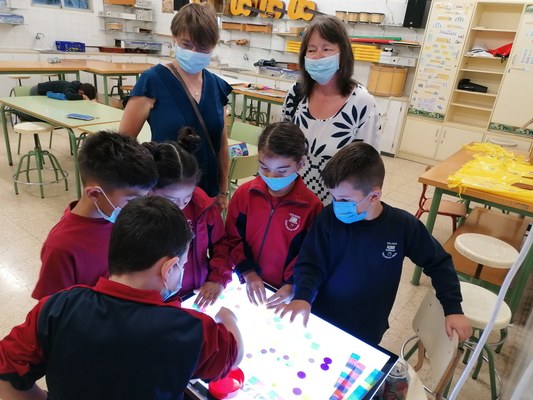 The students were curious about us, they asked questions, the youngest even sang us a song along with the principal.
The students were curious about us, they asked questions, the youngest even sang us a song along with the principal.
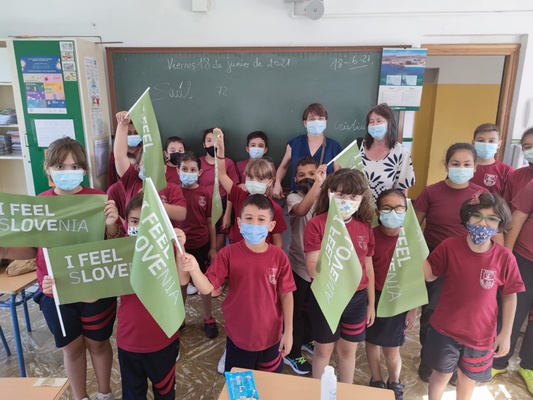
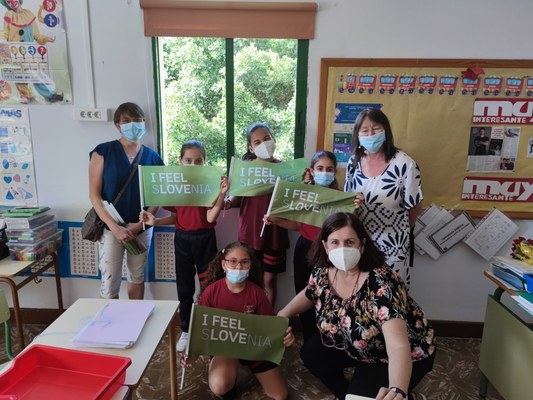
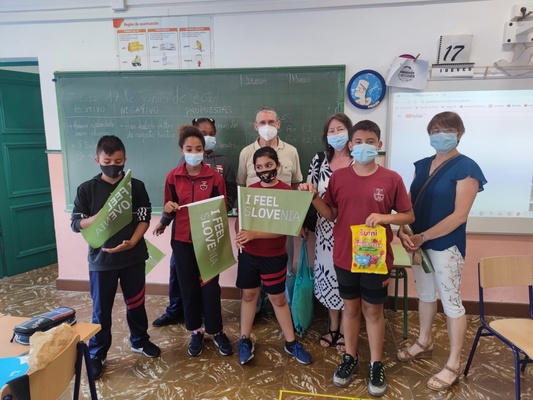
The oldest prepared some typical Canary dances for us, they taught us a jumping game with sequence of steps, which they use for a few minutes long relaxation between a hard school work.
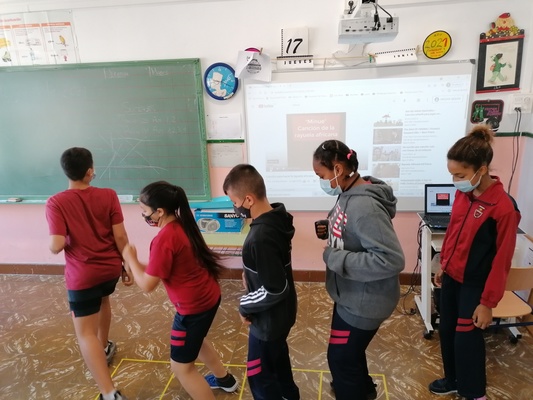
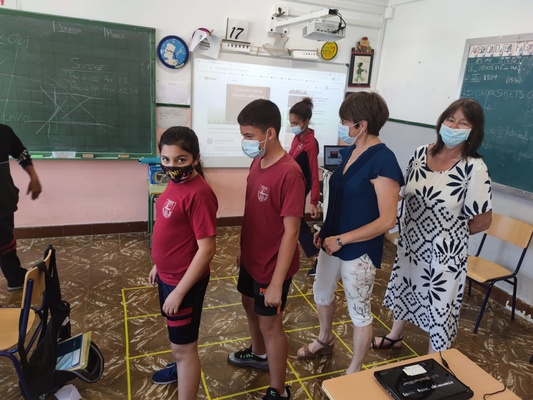
We also visited teacher's cabinets, the dining hall, schoolyard and a football playground. It is owned by a local football team, but the school is allowed to use it in the morning for the PE lessons and other sport activities. With a principal we also visited a school garden, who told us, that all the students are taking care of spices, tomatoes, peppers, calendula, herbs they grow.
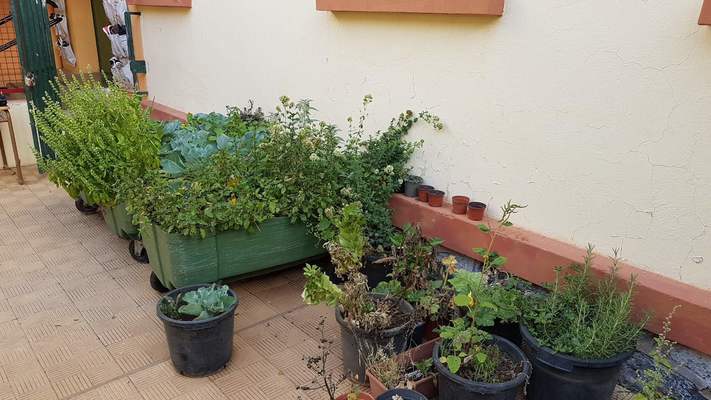
The staff of the centre consists of approximately 16 teachers: 3 Early Childhood Education, 5 Primary Education, 1 Impulse Program, 1 Physical Education, 1 Music, 1 Therapeutic Pedagogy, 2 Foreign Language (English), 1 Foreign Language (French), 1 Religion. There are also a counsellor and a speech therapist, who comes several times a week. They also work as a team with the social worker and the youth teams of the town hall. A psychologist comes to school once a week and diagnoses students with special needs. They also employed an extra teacher, who helps them as a substitute teacher at epidemic times.
Parents aren't allowed to school now, because of epidemic times, they can talk with teachers by phone or in special cases meet them personally.
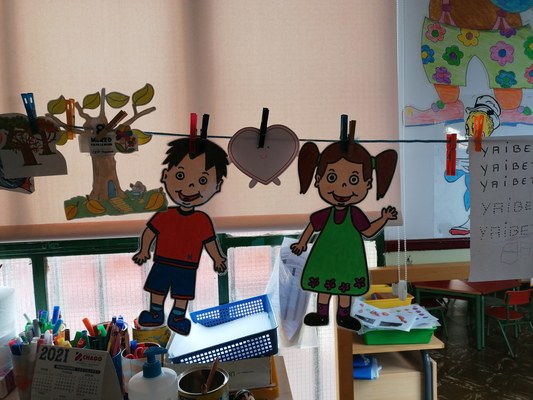
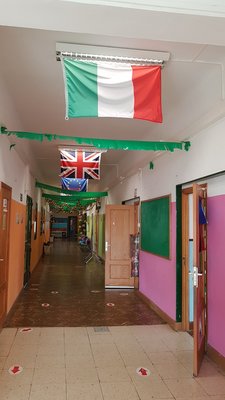
The school is included in many projects, including Erasmus KA1 and KA2. The principal presented a school project Nino and Nina (A boy and a girl) for the youngest. It teaches them, how to be aware of their feelings and how to express anger, fear, tension in acceptable way. It is essential to strengthen them with these skills in their early childhood.
When there is a solution of a problem between students hard to reach, there are mediators to help and this is a mediators bench.
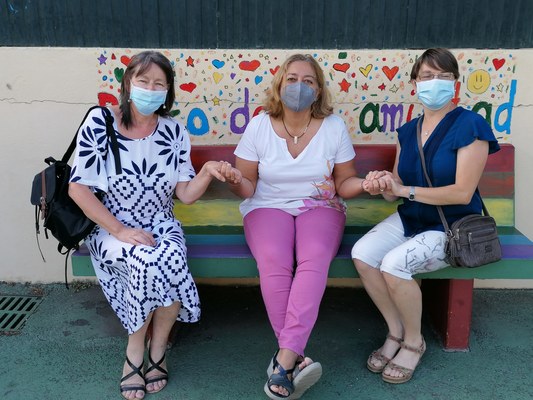 Feelings are important, we have to be aware of them and show them, but of course in acceptable way, because this is essential for all our relationships. We should be more aware of that in our school system.
Feelings are important, we have to be aware of them and show them, but of course in acceptable way, because this is essential for all our relationships. We should be more aware of that in our school system.
Culture of each nation is very important, nation's heritage and nature are a must see anywhere in the world one goes:
El Teide
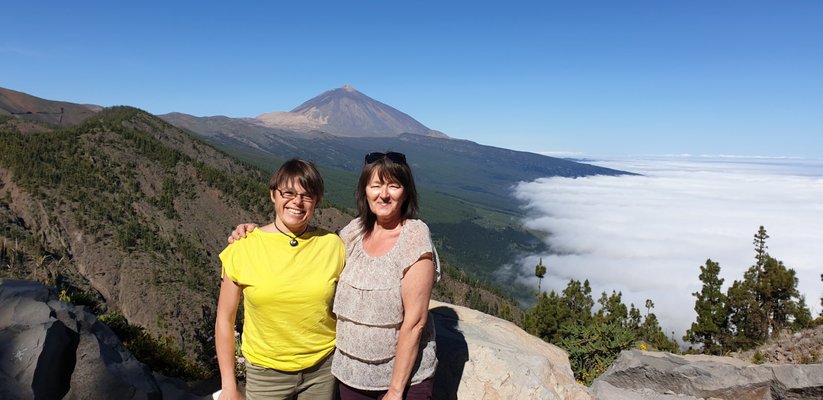
Garachico
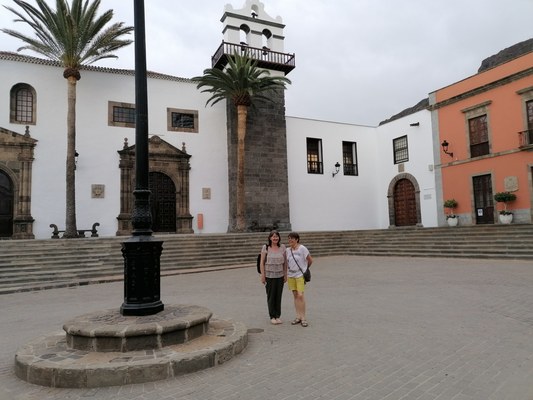
Masca
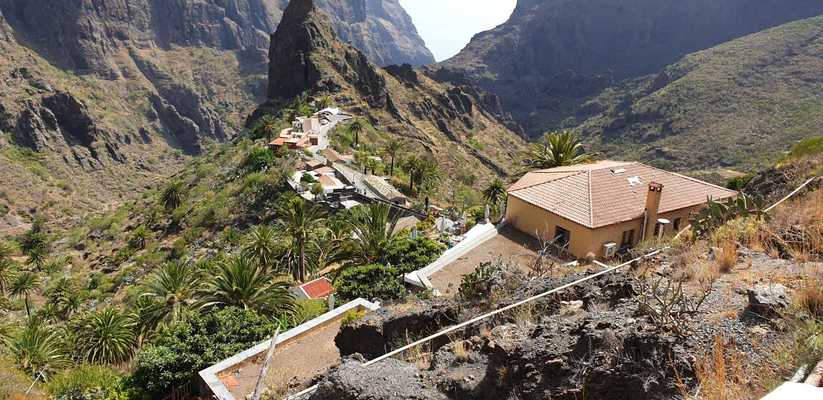
And certification:
